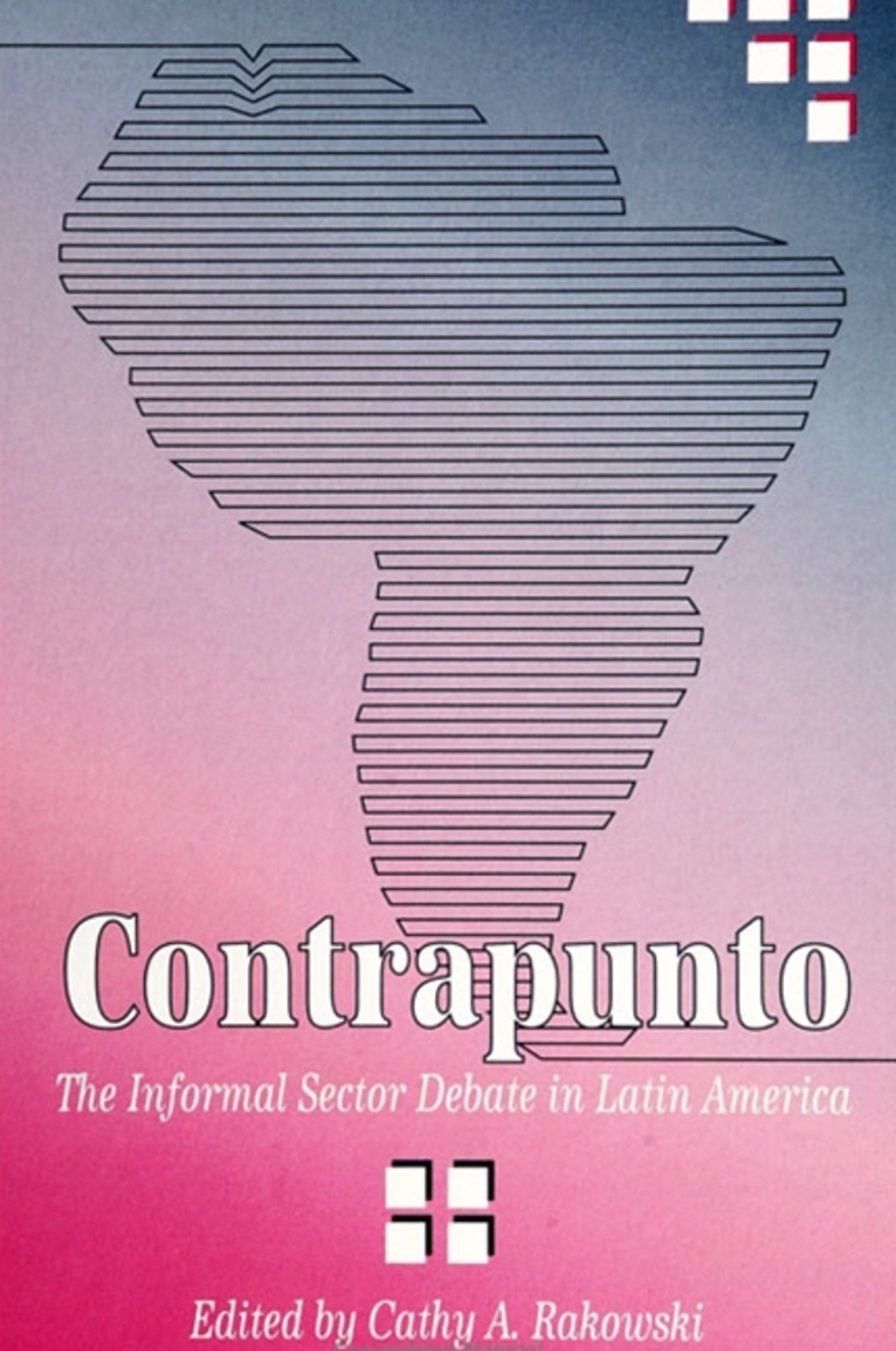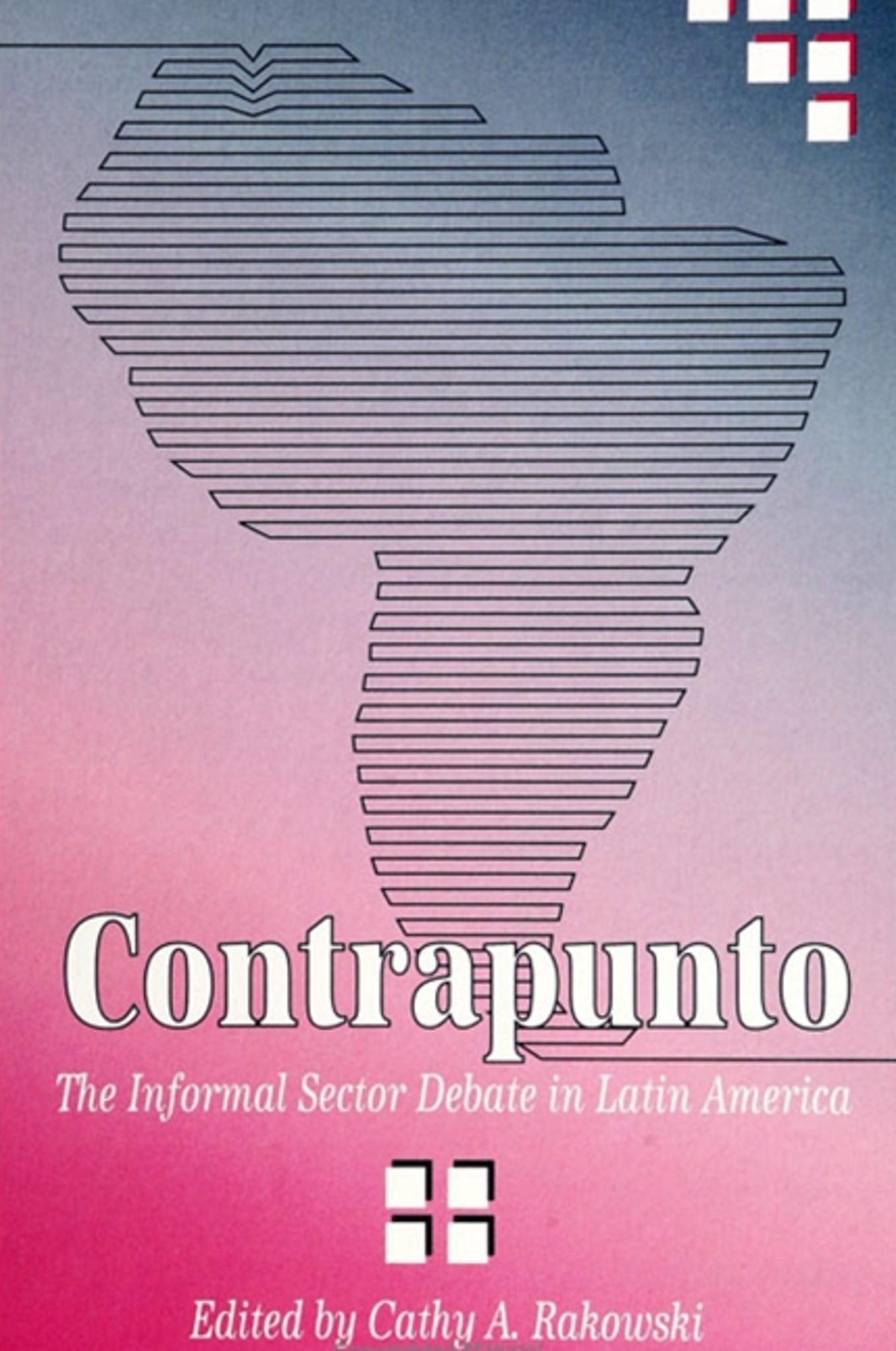We're sorry. An error has occurred
Please cancel or retry.
Contrapunto

Some error occured while loading the Quick View. Please close the Quick View and try reloading the page.
Couldn't load pickup availability
- Format:
-
01 July 1994

The informal sector denotes the small-scale, unprotected, and loosely regulated activities and self-employment that proliferate in developing countries. This book is about the people who engage in informal activities and the people who study, interpret, intervene in, promote, or attempt to repress or regulate the sector. The authors bring together and evaluate for the first time competing theories, policies, and research findings on the informal sector, dealing with issues of power, ideology, and politics; basic research, applied research, program evaluation, and policymaking; exploitation, entrepreneurship, and opportunity; and poverty and the accumulation of wealth.


"Contrapunto is a state-of-the-art treatment of informal activity in Latin America and, therefore, is a critical contribution to the literature. The authors are clearly among the most informed and insightful researchers and practitioners involved with informal activity in Latin America." — Thomas Klak, Miami University
"This is an important and necessary contribution to the field. It will surely become a valuable text in some courses and a required or reference work for many more." — Irene Tinker, University of California, Berkeley
"This book provides access to the subject matter that no other book available does, and it should be of great interest to many academics and practitioners."— Henry Dietz, University of Texas, Austin
Tables
Acknowledgments
I: Overview
1. Introduction: What Debate?
Cathy A. Rakowski
2. The Informal Sector Debate, Part 1: 1970-1983
Caroline O. N. Moser
3. The Informal Sector Debate, Part 2: 1984-1993
Cathy A. Rakowski
4. The Many Roles of the Informal Sector in Development: Evidence from Urban Labor Market Research, 1940-1989
Orlandina de Oliveira and Bryan Roberts
II: Macro Level Policy Issues
5. The Impact of Government Policies on Microenterprise Development: Conclusions from Empirical Studies
Carl Liedholm
6. Macroeconomic Policy and the Informal Sector
Jeffrey R. Franks
7. When More Can Be Less: Labor Standards, Development, and the Informal Economy
Alejandro Portes
8. Informality, de Soto Style: From Concept to Policy
Ray Bromley
9. Inside Informal Sector Policies in Latin America: An Economist's View
Gustavo Marquez
III: Micro Level Intervention Issues
10. The Role of Governments and Private Institutions in Addressing the Informal Sector in Latin America
Maria Otero
11. Training and Technical Assistance for Small and Microenterprise: A Discussion of Their Effectiveness
Cressida S. McKean
IV: A Closer Look at Poverty, Planning, and Power
12. Informality and Poverty: Causal Relationship or Coincidence?
Vanessa Cartaya
13. Transaction Costs, Formal Plans, and Formal Informality: Alternatives to the Informal "Sector"
J. Douglas Uzzell
V: Conclusion
14. Contrapunto: Policy, Research, and the Role of the State
Cathy A. Rakowski
Bibliography
Contributors
Author Index
Subject Index



